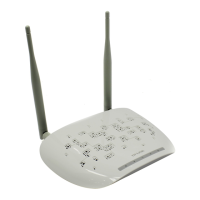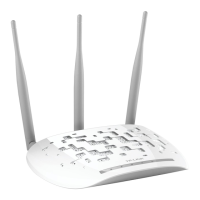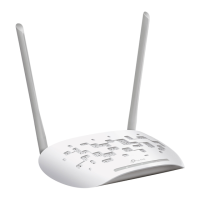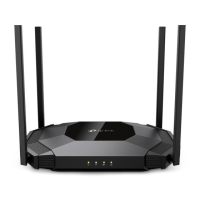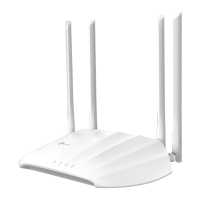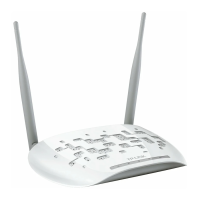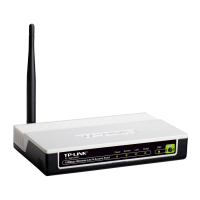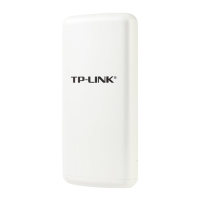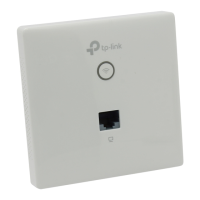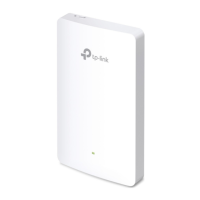92
Key Type Select the WEP key length for encryption.
%LWEnter 10 hexadecimal digits or 5 ASCII characters.
%LWEnter 26 hexadecimal digits or 13 ASCII characters.
%LW Enter 32 hexadecimal digits or 16 ASCII characters.
Ђ :3$
WPA (Wi-Fi Protected Access) is a safer encryption method compared with WEP and WAP-
PSK. It requires a RADIUS server to authenticate the clients via 802.1X and EAP (Extensible
Authentication Protocol). WPA can generate different passwords for different clients, which
ensures higher network security. But it also costs more to maintain the network, so it is more
suitable for business networks.
Version Select the version of WPA.
$XWR The device will automatically choose the version used by the root
AP.
:3$:3$ They’re two versions of WPA security mode. WPA2 is an
update of WPA. Compared with WPA, WPA2 introduces AES algorithm
and CCMP encryption. Theoretically, WPA2 is securer than WPA.
Encryption Select the Encryption type.
$XWR The default setting is Auto and the device will select TKIP or AES
automatically according to the wireless network of root AP.
7.,3 Temporal Key Integrity Protocol. TKIP is not supported in 802.11n
mode, 802.11ac mode or 802.11n/ac mixed mode. If TKIP is applied
in 802.11n, 802.11 ac or 802.11n/ac mixed mode, the device may not
be able to access the root wireless network. If TKIP is applied in 11b/
g/n mode (2.4GHz) or 11a/n mode(5GHz), the device may work at a low
transmission rate.
$(6 Advanced Encryption Standard. It is securer than TKIP.
Authentication Select the type of the authentication.
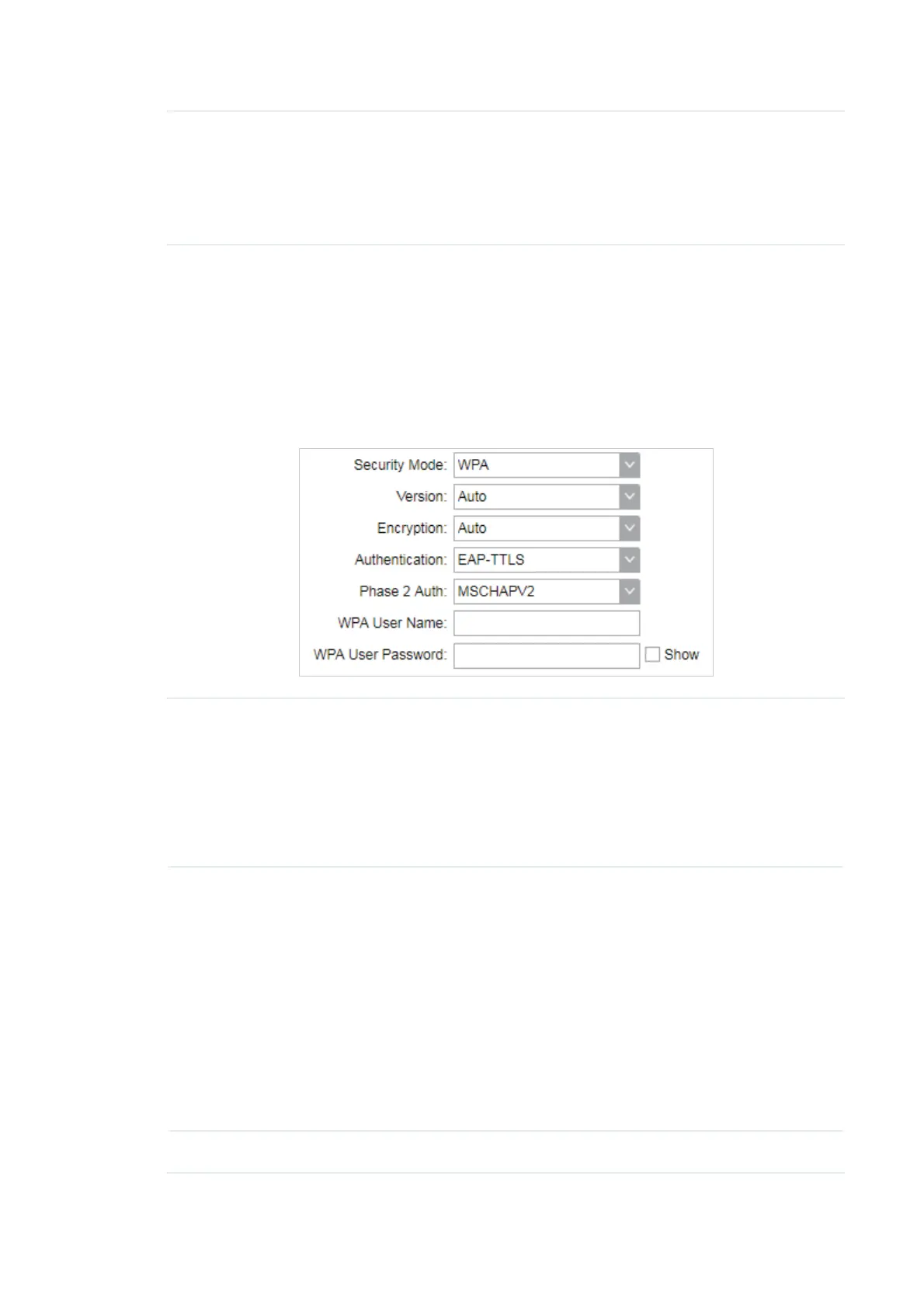